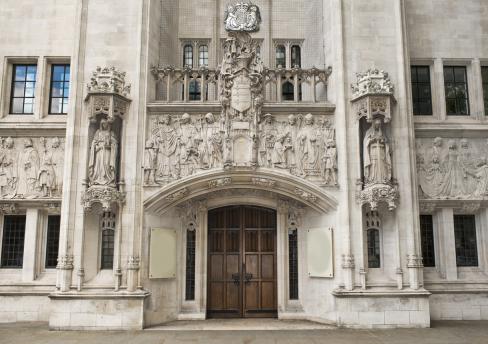
The recent decision by Lord Jones in the Court of Session in Mackay (Fortune's Trustee) v Medwin Investments Limited is an important restatement of the Rodger (Builders) Ltd v Fawtry "offside goals" rule, which may apply where title has been taken to heritable property in competition to another's personal rights to the property.
The case involved Mark Fortune who was sequestrated in February 2011, with the date of his sequestration backdated to December 2010 in accordance with the Bankruptcy (Scotland) Act 1985. In April 2014 Mr Fortune granted a standard security over four properties to Medwin Investments Limited and granted title to a further three properties to them. There was not dispute between the parties that Medwin were aware of Mr Fortune's bankruptcy.
In terms of Section 31 of the Bankruptcy (Scotland) Act 1985, Mr Fortune's estate vested in his trustee in bankruptcy, Elizabeth Mackay, as at December 2010. Much of the case discussed the impact of a provision under section 44(4)(c) of the Conveyancing (Scotland) Act 1924. This gives protection to any purchasers out of a bankrupt estate if the purchases were undertaken more than three years after the date of sequestration (unless the trustee had taken title or put in a renewal memorandum by that date, extending the period). The initial three year protection depends upon the initial sequestration having been noted in the Registers of Scotland however. Needless to say, due to an error early in the case, that initial notice had not been registered in regard to Mr Fortune's bankruptcy.
The error was belatedly noticed by the trustee and attempts had been made by the trustee's agents to resolve the problem. Although there was a form of notice lodged belatedly with Registers of Scotland, the Court was of the view that the three year period of protection under Section 44(4)(c) of the 1924 Act had expired without the appropriate renewal by April 2014 (the time of Mr Fortune granting the securities and transferring title).
The case therefore considered the effect of the 1924 Act in this context. Lord Jones had little difficulty seeing a distinction between the 1924 Act protection, which gave protection to purchasers in good faith, and the general provision vesting the assets in the trustee at the outset of sequestration under Section 31 of the 1985 Act. Accordingly the trustee held a personal right to the seven affected properties from Mr Fortune's sequestration and continued to have that right despite section 44(4)(c) and the activities of April 2014. The trustee did not have a real right to the properties however.
Medwin Investments Limited had sought a real right to their properties when they registered their titles and securities, but this had all occurred knowing of Mr Fortune's bankruptcy and therefore with Medwin Investments being aware of the potential competing personal title of the trustee. Lord Jones held that this gave rise to the same "offside goals" rule set out in the famous case of Rodger (Builders) v Fawdry. In that case, there had been a competition in title where one party had concluded missives to purchase a property which was then sold to the second purchaser who registered their title first. The party who had registered title was aware of the concluded missives to the first party and Lord Justice Clerk Thomson held that the second party could not therefore benefit from an "offside goal" knowing that they were taking personal right in preference to the first party's personal right.
Although much of the case of Fortune's Trustee v Medwin Investments examines facts specific to the case, the crucial point is undoubtedly Medwin Investments' knowledge of Fortune's bankruptcy. Without that, the decision would likely have been entirely different. Lord Jones' decision in this case is further useful in that it clearly applies to the "offside goal" rule to a situation where it is not a battle between competing purchasers but more a battle between completing sellers (as the trustee undoubtedly will want to sell the seven properties to bring in sums to Mr Fortune's estate).
What lesson then for purchasers? There are probably none where the purchasers are in good faith. They will continue to rely on the statutory protection under the 1924 Act. For lawyers, it underlines the need to "Know Your Client" and whether they are in any way connected to the seller, in case this puts obtaining good title at risk. (Such enquiries are advisable in terms of the Money Laundering regulations in any event.)
For trustees in bankruptcy, it is simply another reminder of the risk taken if they do not take real title to a heritable property early in the case. There are however a number of reasons why trustees choose not to take title to heritable property and these remain just as valid The lesson of this case for insolvency practitioners is more that it remains essential to diarise on renewal dates properly and, for the low price of a check of the Registers of Scotland, trustees may now wish to double check that there has been proper intimation of their notice under section 44(4)(c) of the 1924 Act in the immediate period following their appointment. As always an ounce of prevention is worth a pound of cure.
The content of this webpage is for information only and is not intended to be construed as legal advice and should not be treated as a substitute for specific advice. Morton Fraser LLP accepts no responsibility for the content of any third party website to which this webpage refers. Morton Fraser LLP is authorised and regulated by the Financial Conduct Authority.









